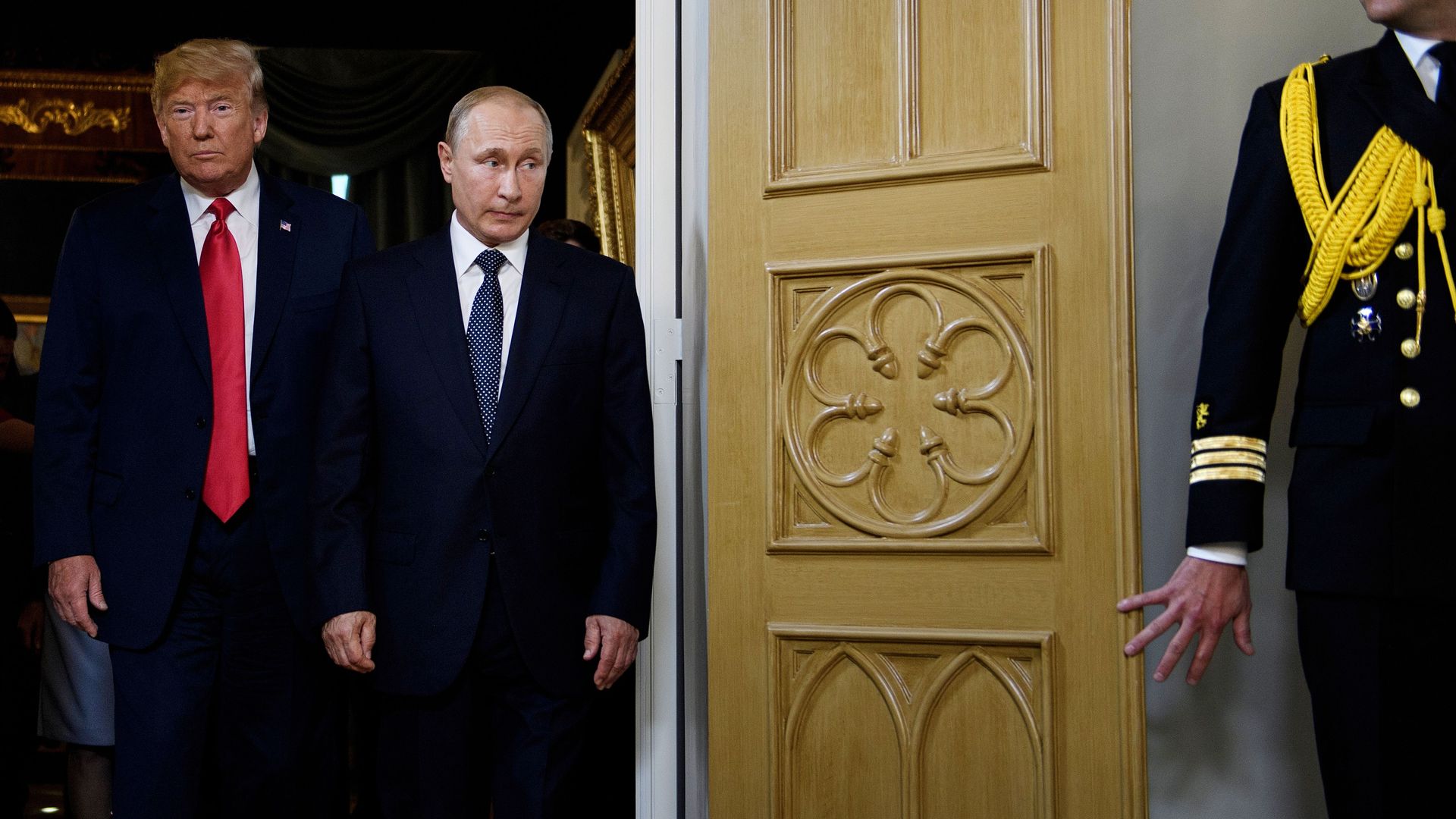Dave Lawler, Alayna Treene

President Trump is looking to Vladimir Putin to close the deal on a pre-election nuclear agreement, a timetable that's an October surprise even for senior Republicans and some in the White House.
The big picture: Trump and Putin have discussed arms control in a string of phone calls over the last six months, and they've dispatched envoys to negotiate in Vienna. But talks appeared stalled until just a few days ago.
National security adviser Robert O’Brien and his Russian counterpart, Nikolai Patrushev, met in Geneva on Oct. 2.
The meeting created enough momentum that Trump’s arms control envoy, Marshall Billingslea, and his Russian counterpart, Sergei Ryabkov, made last-minute plans to travel to Helsinki — with Billingslea even cutting short a trip to Asia.
On Friday, a source familiar with the discussions said the Trump administration believed it now had an agreement in principle, blessed by Putin and Patrushev, that could be finalized within a week once negotiations resume in earnest.
But Ryabkov countered on Saturday that “there are still huge differences in approaches, including to the central elements of such an agreement.” Talk of an imminent deal is hardly “realistic,” he said.
Behind the scenes: The talks have been kept to a tight circle of people on the Hill and at the White House.
One administration official tells Axios it has been handled only at the highest levels in the National Security Council and State Department, but added that some members of the Senate Foreign Relations Committee and a national security working group on the Hill have received briefings.
The big picture: Election day isn't the only deadline driving this process. New START, the last major bilateral treaty limiting the nuclear arsenals of the U.S. and Russia, is due to expire on Feb. 5.
Putin wants to extend it for five years. So does Joe Biden.
The Trump administration has said it would only extend the Obama-era treaty with a parallel agreement in which both sides agree to freeze their nuclear warhead stockpiles.
The U.S. also wants Russia to agree to future negotiations toward an arms control treaty that brings China to the table. Russia has rejected anything that explicitly pressures China, so the U.S. is trying to find language both sides can live with, the source familiar says.
Between the lines: Rose Gottemoeller, the chief U.S. negotiator for New START, says such a deal “could be done tomorrow” because “the contours are already there” and it doesn’t require the precision of a binding treaty.
“Trump has clearly conveyed that he wants the deal to be done, and I think Putin would very much like to sign a deal with President Trump,” she says.
Russia’s dismissive public statements are likely a negotiating tactic, she says, employed in the knowledge that Trump’s timeline for a deal is far tighter than Putin’s.
“When there’s that much high-level attention, negotiations tend to succeed,” she says with a laugh. “I experienced it with President Obama and President Medvedev breathing down my neck, as well as my Russian counterpart.”
What to watch: Billingslea has warned that if the Russians decline to cut a deal now and Trump is re-elected, the U.S. asking price will go up and New START will be at risk. The Russian position, at least publicly, is that they're willing to wait and see what happens on election day.
No comments:
Post a Comment